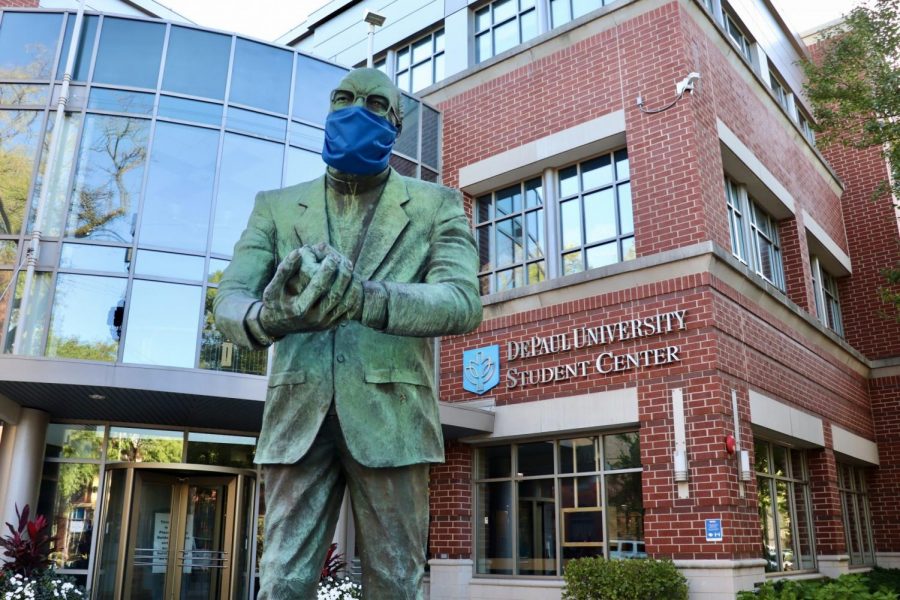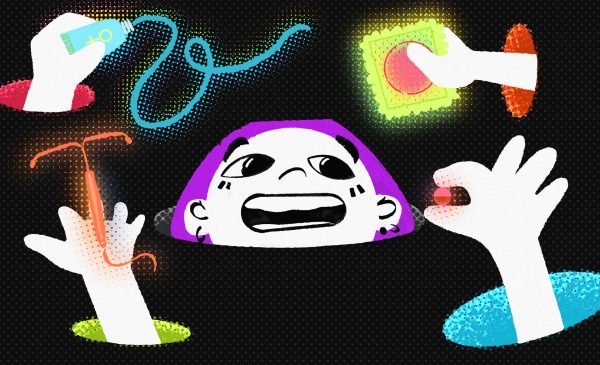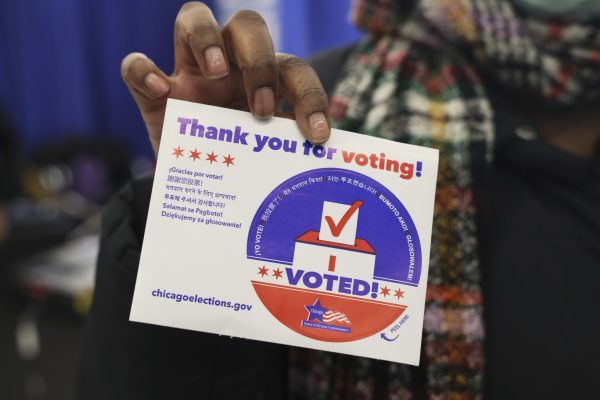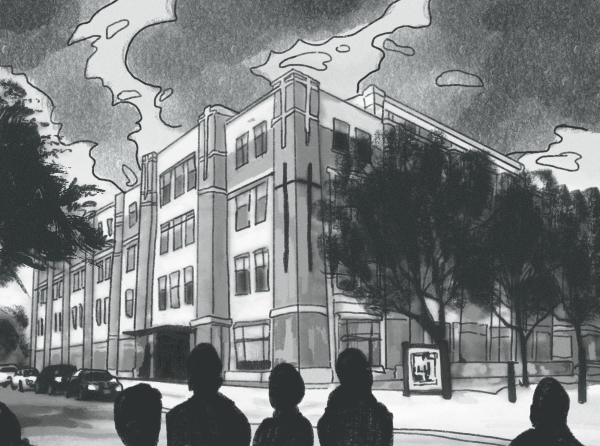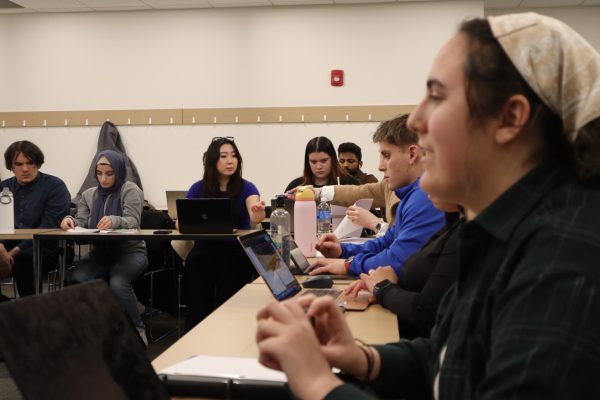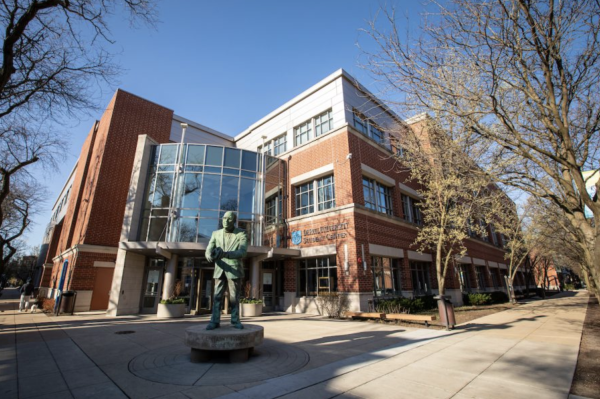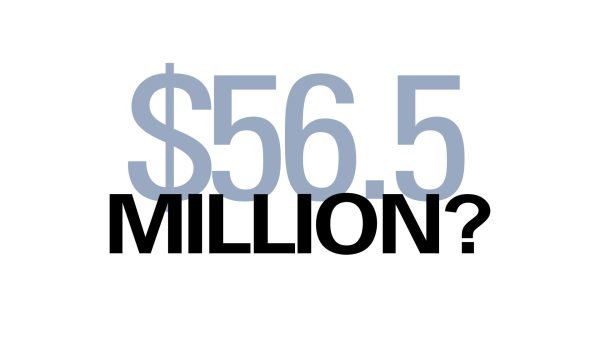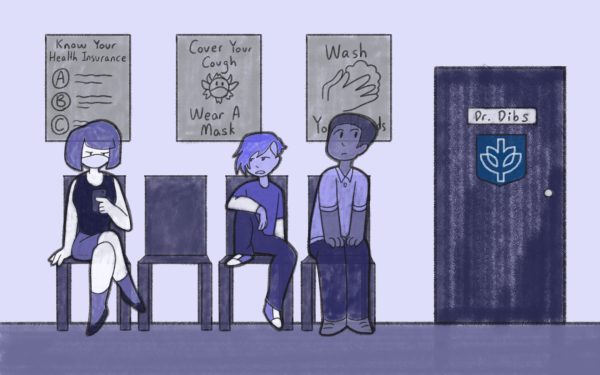DePaul offers limited on campus covid testing
The statue of Father John Egan outside of DePaul’s Lincoln Park campus.
On March 3, DePaul announced via Newsline that they have started offering on-campus Covid-19 testing for select faculty, staff, students from the Theatre School and School of Music, and students living in residence halls.
Testing will be available in the Lincoln Park Student Center on Tuesdays from 1 to 3 p.m. and Thursdays from 9 to 11:30 a.m. No insurance is needed and it is free of charge.
According to DePaul spokesperson Kristin Mathews, those eligible should have received an email with a link to sign up for an appointment from DePaul Housing and Residential Education. Testing will mostly be optional, but students’ academic programs will be in touch if they will be required to participate in certain activities.
With Covid-19 cases going down and vaccine rates going up, this begs the question of why an on-campus testing option was not implemented until now.
“The inexpensive, local test just received FDA emergency use approval. So we haven’t had access to an inexpensive, easy test until now,” said Criag Klugman, the head of DePaul’s Covid task force. He also mentioned that DePaul has offered mail-in testing kits to students since last fall, but that is only available for students who are showing symptoms or who have been exposed to the virus.
Cheryl Hover, the associate director of Emergency Management at DePaul, said that the mail-in testing option has been used by hundreds of students since it was launched. Currently, the only students allowed to participate in on-campus testing are those living in residence halls or a part of the Theatre or Music schools.
“Students, faculty and staff within these programs visit campus to participate in limited performance-based activities such as practices and rehearsals. We do plan to scale up in the future,” Hover said.
As of winter quarter, 4.2 percent of classes are currently being held in person.
Many colleges and universities have had on-campus testing since the beginning of the pandemic, like University of Chicago, but Klugman says the reason DePaul did not offer it or make it mandatory for on-campus activities while others did is because DePaul does not have the same resources as other schools have.
“Schools that did widespread, on-campus testing did so to try and bring people back to campus and mostly had their own medical schools where they could develop, administer and process tests,” Klugman said.
Since DePaul has so few in-person classes, they decided there was no need.
“It’s a shame they waited this long to provide testing, we could have been in person and lost a significant amount of education by being online,” said Grant Palmer, a DePaul student in the Theatre School. “When you are talking about something based around an event or art form, you can’t really do that virtually.”
Back in August, a Newsline article defended their choice to not offer universal testing for people frequently on campus.
“Testing for Covid-19 assesses a person’s infectious status at one point in time. That status could change within hours. Frequent, repeated testing would be needed to ensure the population was free of Covid-19. Because of this, universal testing is not a practical prevention effort,” the article stated.
Hover added that testing was incredibly limited when cases began to rise in March, and was mostly only available to those with severe symptoms.
While on-campus testing is a step forward for preventing the spread, it is still not a replacement for social distancing and wearing masks. So far, there have been 80 confirmed cases of Covid-19 on campus since August, but that does not include cases that were not reported by students or were reported before August 2020.
As cases continue to go down, DePaul plans to offer more in-person classes this summer before going back to mostly in-person in the fall.


